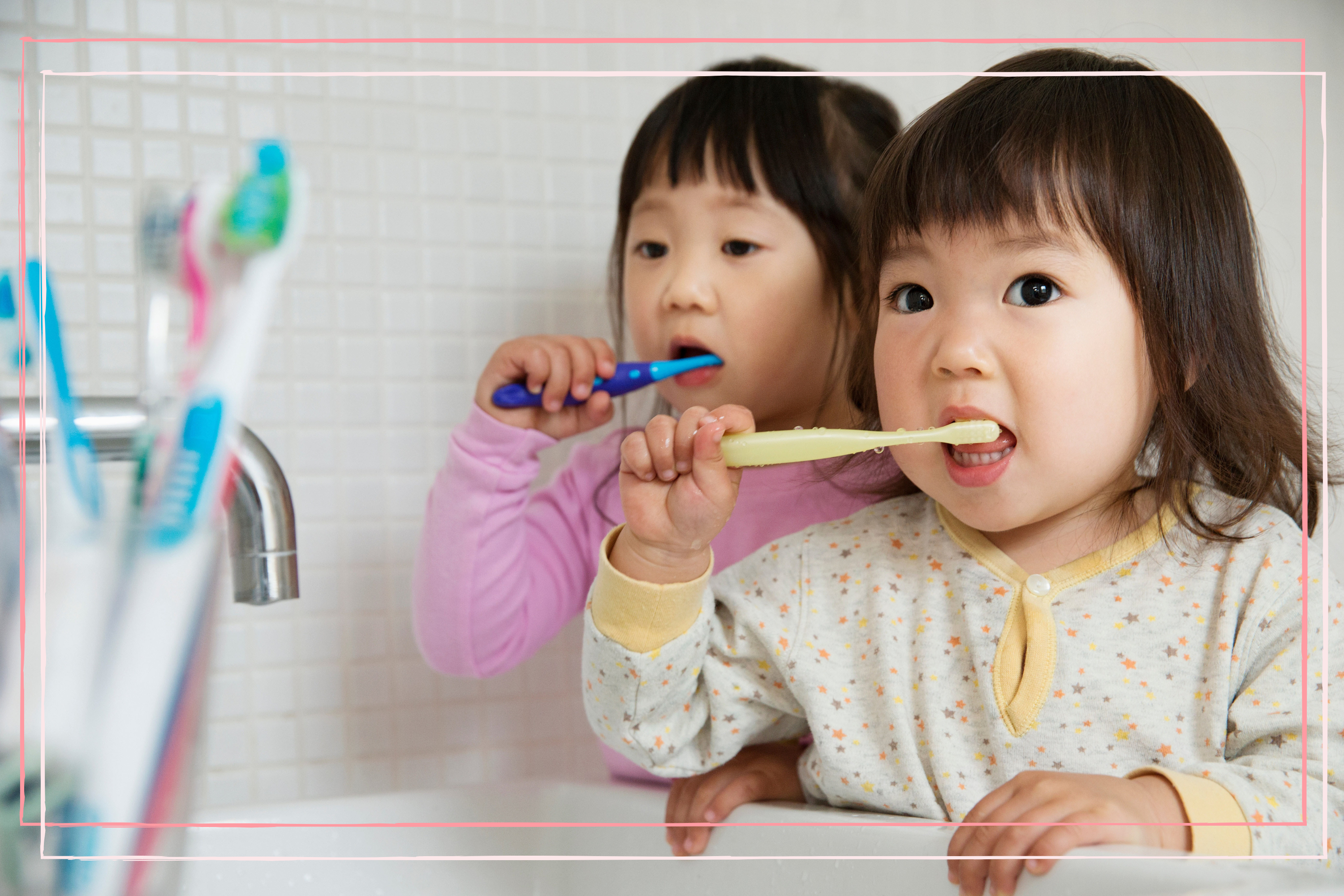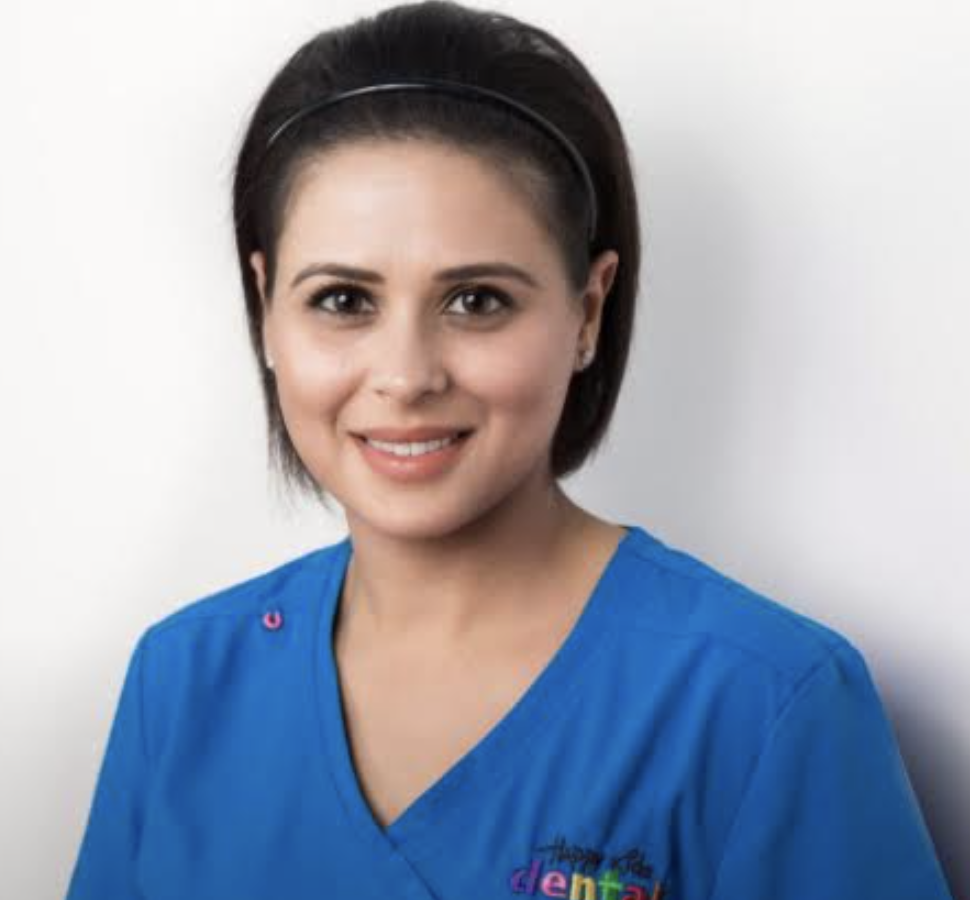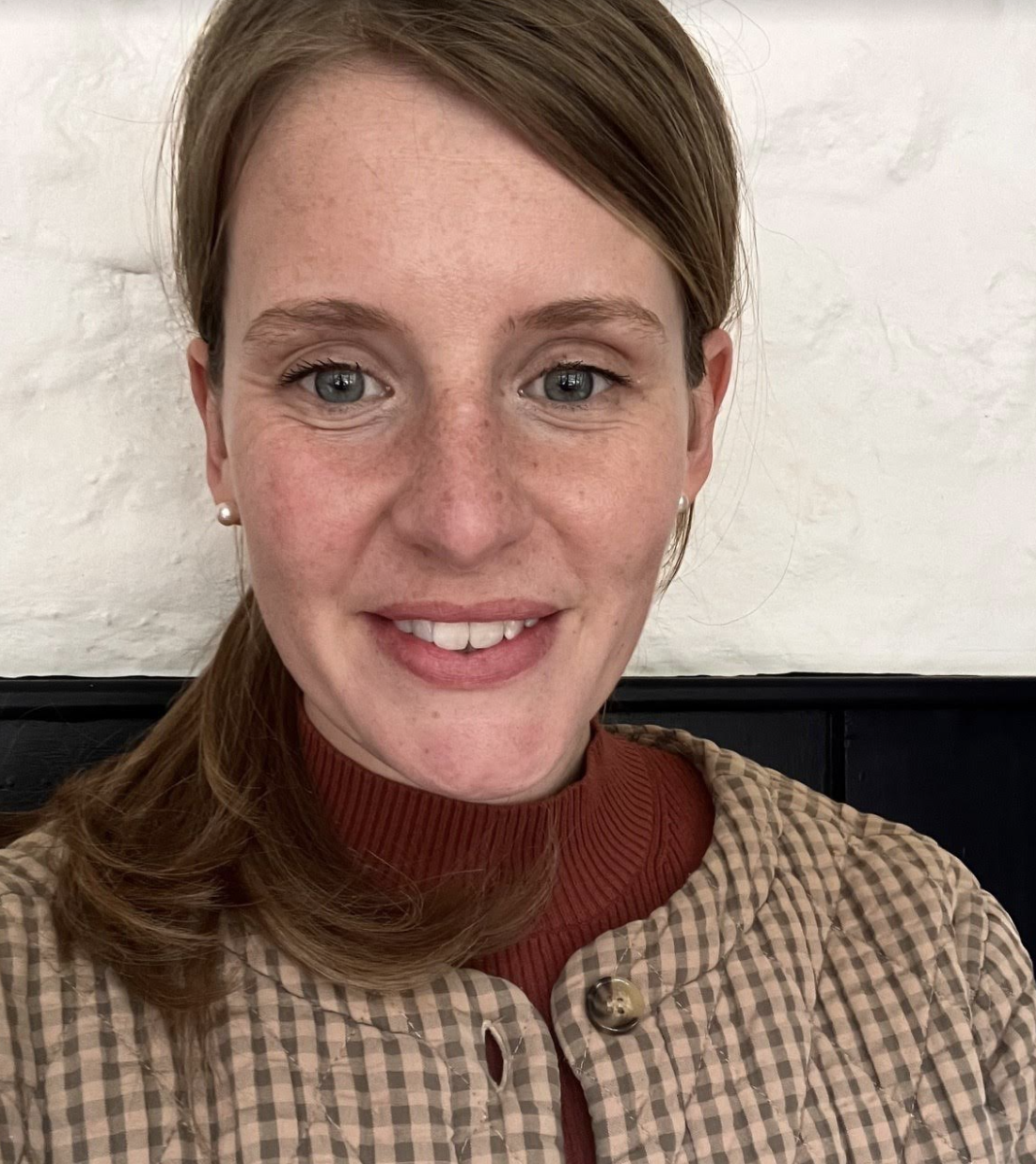Does your toddler or child hate brushing their teeth? 11 expert-approved tips to make it less stressful


As anyone raising a toddler or child will know, getting them to brush their teeth properly on a regular basis can be quite the challenge. While as adults we understand why it’s crucial to take our dental care seriously, little ones can dismiss this part of their morning and evening routine as simply time away from play.
Yet, ensuring your youngster’s teeth are properly cleaned twice daily will stand them in good stead - not just now, but particularly in the future. It will help them avoid tooth decay and hang on to their all-important baby teeth for as long as possible, while also teaching them positive life-long habits from a young age.
To give you the best advice when it comes to your children’s dental health, we’ve called on a number of top experts. Paediatric dentist Dr Jasleen Sangha, dental hygienist Hannah Ripley and dentist Cerri Mellish are here to guide you through. They share all the key steps parents can take to make dental care a tantrum-free zone at home…
Why might little ones struggle to brush properly?
Dr Sangha from Happy Kids Dental, explains that children do not have the manual dexterity to brush their own teeth until they are seven or eight years of age. “Although that does not mean they should not be encouraged to brush their own teeth before that,” she notes, while acknowledging that it can also be hard for them to stay focused. “Two minutes is a long time in the life of a toddler - particularly if they are feeling tired just before bedtime.”
There can be other more practical barriers. “Some children may have sensory issues, which could be a passing phase for some and more persistent for others,” says Cerri Mellish, a dentist at Bupa Dental Care. “They may struggle with the taste and texture of the toothbrush and toothpaste. Strong, minty toothpastes may feel ‘spicy’ to their sensitive taste buds, and they might not like the sensation of the bristles.” She adds that their teeth usually start coming through between six months and two years, and during this time it may also feel painful to brush.
11 tips to make teeth-brushing a less stressful part of family life
- 1. Give them independence - “I usually recommend allowing children to have a go and then asking them to give you the brush once they have finished so you can ensure their teeth are properly cleaned,” says Dr Sangha. “Explain that it’s the turn of ‘mummy’ or ‘daddy’ or another responsible adult.” Eventually, you can trust them to get on with it.
- 2. Use visual aids - “Toddlers are much more impressed by visual aids rather than long explanations - perhaps use a two-minute sand timer that they can watch as you or they brush their teeth to help give them something to focus on,” recommends Dr Sangha. Similarly, Mellish suggests asking them where they think their favourite character is hiding in their teeth and “scrubbing them out”.
- 3. Make it fun - “You can build your own playful routines as a family - such as clapping or dancing once the timer is finished,” notes Dr Sangha. “Once this becomes established as a habitual behaviour, toddlers will often expect this and want to go through the process of brushing their teeth to ensure their ‘reward’ at the end.”
- 4. Harness easy wins - “Using charts to tick off morning and evening brushing with a treat at the end of the week can also be useful for motivation,” recommends Dr Sangha. “It could perhaps be age-appropriate stickers for younger children, or maybe a trip to the zoo for older children.” Whatever you do, don’t give them sweets.
- 5. Consistency is key - “Toddlers crave routine and structure,” points out Dr Sangha. “This gives them stability in their busy and stimulating world. Keeping the timing of brushing consistent every day can help them to expect and accept it more easily.”
- 6. Select handy tools - “Your child will probably want to start trying to brush their own teeth from about the age of three, so choose a toothbrush they can get their little hands around,” suggests Hannah Ripley, dental hygienist at Church Street Dental Practice. “Although, they will still need help and supervision until the age of about six when manual dexterity improves.”
- 7. Add a soundtrack - “Listen to your child’s favourite song and brush for the duration of it,” recommends Ripley. Similarly, Mellish suggests: “Brushing along to a special toothbrushing song, that can be found on YouTube, means you can get some support from their favourite cartoon characters.”
- 8. Lead by example - “Children copy their parents from an early age, so brushing your teeth together as a family is a great way to encourage them to follow suit,” points out Ripley. “Just as we take the time to explain why it’s important to wash our hands regularly, telling the same to our children about teeth brushing is also key.”
- 9. Enlist different toothpaste - “Brushing with an age-appropriate toothpaste, like a strawberry-flavoured one, and applying fluoride varnish - as directed by a dental care professional - can protect teeth in multiple ways,” says Mellish. “Fluoride makes the teeth more resistant to mineral loss, it promotes faster mineral uptake and helps reduce the formation of dental plaque.” She adds that they may do better with a flavourless, non-foaming toothpaste - like OraNurse.
- 10. Check good progress - “To spot plaque in its earlier stages, you can use a disclosing tablet - available in pharmacies - which stains plaque purple,” suggests Mellish, of how you can see where you or your child could be brushing better. “This can be a really fun activity to do with kids to help them improve their brushing technique.”
- 11. Don’t give up - “I think it’s important to keep things light and playful if you can,” says Mellish. “You are trying to establish a good routine and it might not be perfect every time but keep persisting.”
Other ways to care for children’s dental health
- Fuel carefully - “Diet plays a huge role.” says Dr Sangha. “Sweet food and drinks - such as cakes, biscuits and juices - should be restricted and limited to meal times only. Plain water, milk, fresh fruits and vegetables can be consumed at any time.”
- Clean closer - “A toothbrush alone cleans just 60 per cent of the tooth, so the importance of adding interdental cleaning cannot be overstated,” insists Ripley. “Oral hygiene products, such as DenTek’s floss picks and interdental brushes, may be introduced at an early age. In fact, dentists recommend children start doing so as soon as two teeth are touching.”
- Soothe differently -”Dummies should be stopped by the age of two at the latest to ensure an open bite - where the teeth become misaligned when closed - does not develop,” warns Dr Sangha. “Even if an open bite does develop, stopping by this age will allow enough time for spontaneous tooth movement to resolve the issue.”
- Check-ups regularly - “Take your child to visit a dentist around six months of age, which usually coincides with the appearance of their first tooth, and book in regular check-ups thereafter,” says Dr Sangha.
- Prepare well - “If your child has never been to the dentist before, it can be helpful to set expectations at home about what will happen at the visit - by doing role play or reading them a story,” suggests Mellish. “It’s important you stay calm and relaxed, since your children will absorb this too.”
Why is it important for kids to practice good dental care?
“There are two main reasons,” says Dr Sangha. “Firstly, regular brushing removes the plaque biofilm that the teeth get coated with throughout the day and night, and secondly it delivers the fluoride or hydroxyapatite that is present in toothpastes to the teeth - active ingredients of which help to remineralise the acids from food and prevent tooth decay.”
It also helps protect their baby teeth. “While they will be lost eventually, they are actually extremely important,” insists Dr Sangha. “Not only do they prevent pain, ensure an aesthetic smile and allow children to enjoy eating different textures of foods - including being able to chew on hard items, such as carrots and nuts, which helps build a strong jaw - but they are space maintainers, keeping room for adult teeth to come through.” She explains that if they are lost earlier than they naturally would, then adjacent teeth may drift into the space, risking crowding.
GoodtoKnow Newsletter
Parenting advice, hot topics, best buys and family finance tips delivered straight to your inbox.
What’s more, our experts emphasise that youngsters who learn how to look after their teeth early on will be more likely to keep doing so throughout their lives, benefiting from boosted confidence and self-esteem from their healthy smile. “Habits established during childhood become ingrained as behaviours that will follow through into adulthood,” explains Dr Sangha. Which will also save time and money on future avoidable dental issues.
Which is why it’s vital to be alert to any signs that your toddler or child’s teeth need better brushing. “Look for staining, a furry and un-smooth appearance which is actually the plaque layer, bad breath from food debris and dental decay,” says Dr Sangha. If the plaque remains on the gums, it can cause gingivitis - or inflammation of the gums - which will show up as red, swollen gums that bleed easily when brushed.
Additionally, Ripley adds that parents should be aware of toothache or sensitivity to hot or cold foods. “These can indicate your child has a problem with their oral health,” she reveals. “They may also start having difficulty eating, or very young children may begin sucking their thumb or experience delayed speech.”
We spoke to the following experts

Dr Jasleen Sangha is a paediatric dentist and a former clinical lecturer in paediatric dentistry at the Royal London Hospital. She has 20 years of experience treating children, and is currently working at Happy Kids Dental in London’s Chelsea.

Hannah Ripley is a dental hygienist at Church Street Dental Practice and Zandielle Dental Clinic, both in Attleborough, Norfolk. She qualified from the University of London in 2005, and is registered with the General Dental Council.

Cerri Mellish is a dentist at Bupa Dental Care in Dursley, Gloucestershire. She pursued a degree in biochemistry at Oxford University, followed by a dentistry course at Barts & The London Dental Hospital, before qualifying in 2014.

Lauren is a freelance writer and editor, with more than eight years of experience working in digital and print journalism. She has penned news and features for titles including Women's Health, Daily Telegraph, Cosmopolitan, The Times, Stylist, The Guardian, Woman & Home, Dazed, The Sun's Fabulous, Yahoo UK and Grazia.
Lauren specialises in covering health and wellness topics—ranging from nutrition and fitness, to health conditions and mental wellbeing. She also runs a weekly newsletter called Well, Actually..., which has been named a Substack Featured Publication.
